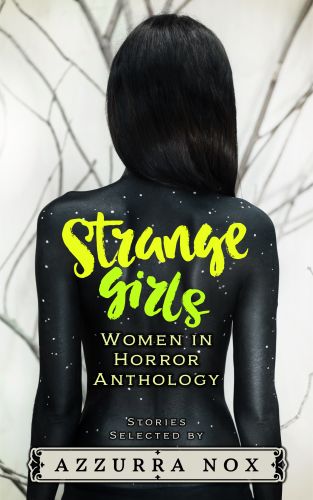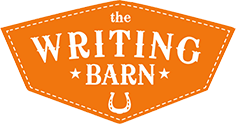Writers! Today we have a special craft talk vlog post that comes to you from Writing Barn Teaching Artist, Madison Estes. Madison Estes has had her horror fiction published widely in numerous publications and anthologies and is here to give you a virtual lesson on Character Agency.
If you want to learn more about writing successful Horror Fiction, consider taking Madison’s upcoming 6-week class Horror Fiction: An Introduction to Writing and Publishing Horror Stories ONLINE.
See Full Transcript Below:
Character agency is defined as characters making decisions that affect the plot. Passive characters are put in situations outside of their control by no fault of their own, and things happen to them. Active characters inspire reactions in other characters and their environment.
Character agency exists on a spectrum. Some people think that a passive character is someone that doesn’t make a single decision in the story. They think if their character makes one important decision that affects the story, the character is automatically not a passive character, but active characters make choices that decisions that affect the plot throughoutthe story, not just once.
In general, the more your characters influence the plot, the better the character and story become. That isn’t to say that your character has to be active the whole time. You can start with a passive character that develops into an active character. Passive characters can be more relatable than characters that are always in charge. Especially when the characters are aware at how passive they are and feel frustrated about their lack of control. This powerlessness can help the audience relate to your character, and sympathize with them.

In Breaking Bad and Good Girls, the main characters turn to crime in order to get out of debt. Because the character were put into financial debt by no fault of their own, such as illness, deception, and a custody battle, we sympathize with them a lot more than if they had brought the situation on themselves, which is exactly what an active character would do.
The characters start off reacting to their situations and just trying to deal with the fallout of their initial crimes. Later on, several of the characters become more active as they grow more comfortable with the life of crime and as they realize they were unfulfilled with their previous, noncriminal lives. At that point, crime becomes a choice, and that’s when the characters go from being passive to active.
Character agency should have an ebb and flow, rather than being something to shoot for 100% of the time. Something happens to the character, the character reacts, then the environment or another character reacts to their reaction. The cycle continues. A completely active character is overpowered. If nothing happens TO them, then they’re in total control, which is boring. There’s no threat or challenge. That’s why balance of actions and reactions is important.
Character agency is often lacking in horror. Horror is perhaps the one genre where a writer can get away with limiting character agency in the name of demonstrating the powerlessness of humans to stop the horrors in our world.
We can’t stop wars, plagues, terrorist attacks, or the violence we see on the news. Why should we be able to stop monsters, aliens, and eldritch abominations? If the nihilistic ending is what you are aiming for, the best way to achieve this is to give the illusion of character agency, then strip it away. Watching characters struggle to survive while knowing the entire time that their actions are futile is not as satisfying as having the smallest hope they might overcome their obstacles, even if the moral at the end of the story is humanity’s powerlessness over their lives.
It’s usually better to give characters a chance to survive and overcome obstacles. If they do fail, it’s more interesting to let it be due to their own personal flaws than due to an overpowered antagonist, like in Rose Redwhen Joyce died because she wouldn’t leave the house due to her obsession with proving herself.
A good example of character agency in horror is the film You’re Next. The film was praised for the main character’s active approach to a home invader situation. In most home invasion movies, the characters run and hide, and fight back only when directly confronted by an intruder. But the main character in You’re Next sets traps for the home invaders and hunts them down. This character doesn’t just react to the masked invaders trying to kill her—she plays an active role in executing plans to survive. She puts the antagonists in a position where they are reacting to her actions. It creates a compelling story and character.
Of course, the more powerful you make your protagonist, the stronger the antagonist needs to be. This is especially true in horror. Remove the danger too much, and the story loses the horror element that drew the reader in.
To evaluate character agency in your story, ask yourself, does your main character work toward reaching their goals, or do things outside of their control just happen to bring them closer to their goals? Coincidence and luck are the enemies of character agency. The harder your character works to get what they want, the more satisfying it is when they achieve it (or tragic when they don’t). Or if they find out they don’t want what they have been working for and that they want something else, the bait-and-switch has a stronger punch if the character had to plan and work really hard to get what they thought they wanted.
There are a few other questions you might want to ask yourself to decide if your character has agency or not:
- Is your protagonist coming up with ideas for how to reach their goals, or is someone giving them all the answers?
- On the other hand, is your protagonist a know-it-all who knows exactly what actions their companions should take to reach their goals?
- Also, do those characters follow those orders, or do those character come up with their own ideas for how to get what they want?
- Do your supporting characters even have goals outside of helping the main character? What other motivations could they have that would make the character complex?
Giving a supporting character a motivation independent of the main character’s objectives can help that character feel more real. And if one of their goals conflicts with the protagonist’s goal, that can create drama and make the plot more compelling.
One last thing to be aware of is that writers create passive characters when they don’t know what their characters want. So figure out what your characters want, because when you do, it’s much easier to write active characters.
I hope this video has given you a new perspective on character agency. For more information on this topic, as well as worldbuilding, monster creation, plotting, and much more, be sure to check out my online horror writing class at The Writing Barn. Thank you for your time, and I hope to see you in class.

Author Madison Estes has work featured in Texas Road Kill Vol. 3 (HellBound Books), Transcendent (Transmundane Press), and Enter the Aftermath (TANSTAAFL Press). Additionally, she’s been published in The Toilet Zone(HellBound Books), Hell Hour (Abomination Media), Mojave Heart Review, and One Sentence Poems. Furthermore, her nonfiction article, “A Reflection on Aging and Body Horror,” is available at Transmundane Press.
Madison received the Mystery Writers of America Helen McCloy scholarship. And, she received Honorable Mention from the L. Ron Hubbard’s Writers of the Future contest. Her work is forthcoming in Mad Scientist Journal, Tales from Gehenna (Gehenna & Hinnom), and Strange Girls (Twisted Wing Productions). Upcoming publications also include Unexpected Heroines(Grimbold Books), Horror USA: California (Soteira Press), The Devil’s Doorbell (Hellbound Books), Mused, and Mortal Realm. In addition, she’s currently working with an editor and five other writers on The Complete Guide to Writing Horror: Volume 1 (Dragon Soul Press).
Madison lives in southeast Texas with her three dogs. In her spare time, she enjoys reading, swimming, sculpting, and drawing. Find her on Twitter, Instagram, or by visiting her website.
